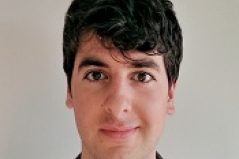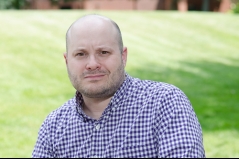Norbert Schwarz

Norbert Schwarz
Norbert Schwarz is Provost Professor in the Department of Psychology and Marshall School of Business at the University of Southern California in Los Angeles. He received a PhD in sociology from the University of Mannheim, Germany (1980) and was previously affiliated with the University of Heidelberg, Germany (1981-1992), ZUMA, a social science research center in Mannheim, Germany (1987-1992), and the University of Michigan in Ann Arbor, Michigan (1993-2013). He is a member of the American Academy of Arts and Sciences and the German National Academy of Science Leopoldina. His research focuses on the situated, embodied, and experiential nature of human judgment and its implications for social science research.
Marina F. Thomas
Marina F. Thomas
Marina F. Thomas is a post-doctoral researcher at the Research Centre Transitional Psychiatry of the Karl Landsteiner University of Health Science, which is concerned with topics regarding the mental health and mental illness of transition-age youth. She is a psychologist and holds a PhD in media and communication sciences. Her research specialties are media, sexuality, and romantic relationships.
Emir Efendic

Emir Efendic
Emir received his PhD in Social Psychology from the University of Bordeaux in 2017. His work is mainly in the field of judgment and decision making with a special focus on affective influences on decisions, the deliberative vs. automatic/intuitive processes behind decision making. He is currently a Post-doc at the Technology University of Eindhoven where he works on understanding when and why people fail to rely on decision support systems and algorithms. For more details on Emir’s work you can check out his website: emirefendic.com.
Christopher M. Federico

Christopher M. Federico
Christopher M. Federico is Professor of Psychology and Political Science at the University of Minnesota. His research interests include ideology and belief systems, the psychological foundations of political preferences, and intergroup attitudes. He is the recipient of numerous awards, including the 2007 ISPP Erik Erikson Award for Early Career Achievements, the 2007 ISPP Roberta Sigel Junior Scholar Paper Award, and the International Society for Justice Research’s 2009 Morton Deutsch Award. His research has been published in the Journal of Personality and Social Psychology, American Journal of Political Science, Public Opinion Quarterly, Political Psychology, and elsewhere.
Bruna Calado

Bruna Calado
Bruna Calado is a PhD Candidate from the House of Legal Psychology, affiliated to Maastricht University and the University of Gothenburg. Her PhD research focuses on the reliability of eyewitness memory when witnesses have repeatedly experienced an event. She has attended the Universidade Estadual da Paraíba in Brazil where she graduated as a psychologist.
Maria Gröndal

Maria Gröndal
Maria Gröndal is a clinical psychologist and PhD student within psychology at the University of Gothenburg, Sweden. Her research focuses on irritability, anger and impulsivity with a special interest in women with severe premenstrual symptoms.
Janneke Schilder

Janneke Schilder
Janneke Schilder earned her Bachelor’s degree in Social Psychology from the University of Utrecht and currently earned her Master’s degree of Social Psychology at the University of Tilburg. Janneke has a wide range of research interest, but most of them involve intimate relationships and family bounds. One of her recent research projects investigates the role of warmth and embodiment on social behavior.
Felix Peter
Felix Peter
Dr. Felix Peter is a qualified psychologist and school psychology consultant at the Saxony-Anhalt State School Administration. He is part of the research initiative "Research for Planetary Health & Transformative Change" and dedicates himself professionally and in the association Psychologists for Future (Psy4F) to the topics of sustainability education from a psychological perspective and resilience in dealing with socio-ecological crises.
Melanie B. Tannenbaum

Melanie B. Tannenbaum
Melanie Tannenbaum received a B.A. in psychology with honors from Duke University in 2009. She is currently a second-year graduate student in social psychology at the University of Illinois. Her main research interests include power, persuasion, and the effects of general action/inaction goals on behavior change, specifically behavioral inhibition.
